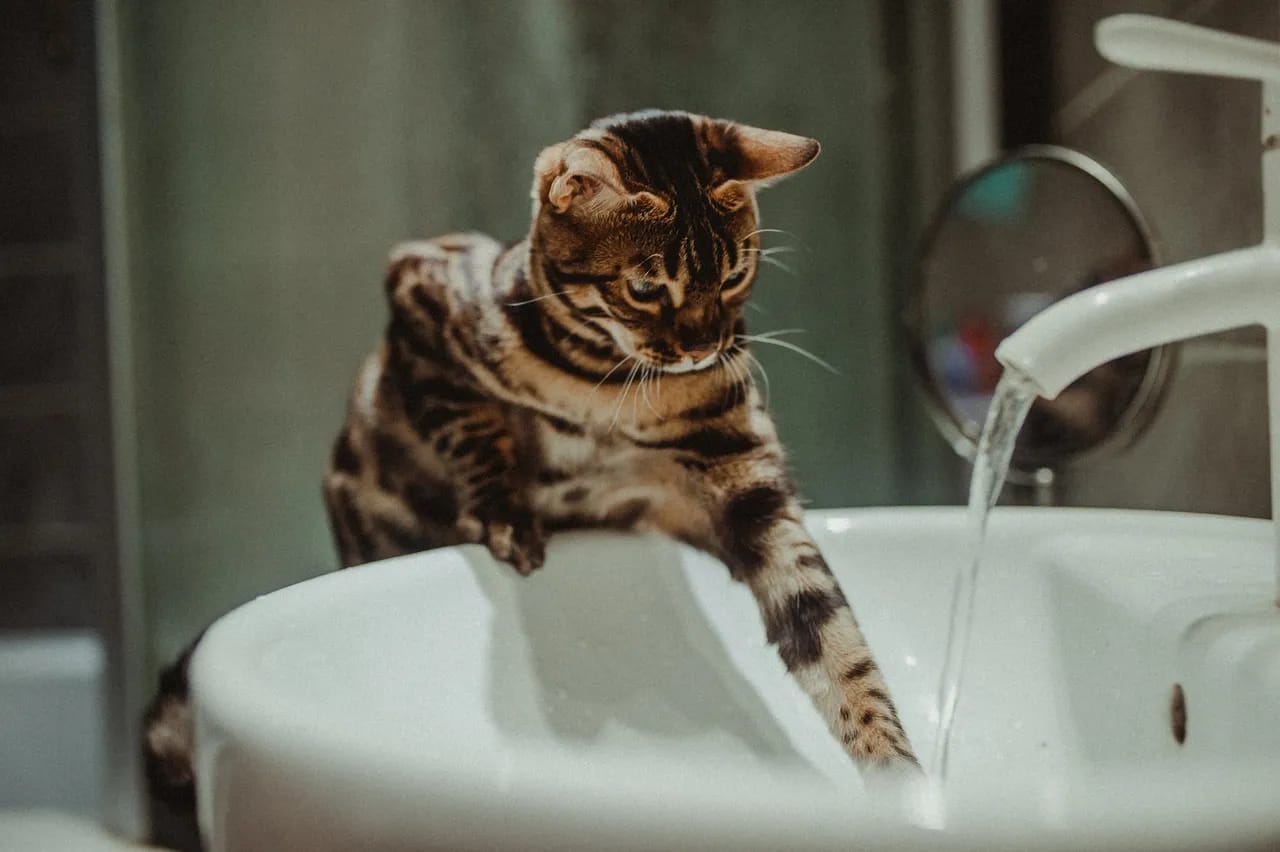Hot Water on Demand: The Ultimate Guide to Tankless Water Heaters
Imagine a world of endless hot water, where your showers never run cold, and your large family’s demands are effortlessly met. You know the feeling – the rush to get ready in the morning, the scramble for hot water before it runs out, the battle for that last warm shower. But what if there’s a solution that ensures you’ll never face that icy surprise again? This is the perfect opportunity to introduce the star of our post today: tankless water heaters.
Imagine stepping into your bathroom, turning on the faucet, and feeling that comforting stream of hot water instantly – no waiting, no rationing, just pure comfort. The importance of a reliable and efficient hot water system cannot be overstated, especially when catering to the needs of a bustling household. That’s why we’re here to introduce you to tankless water heaters.
In this post we will give you a brief introduction to tankless water heaters, go over ten frequently asked questions (FAQs) about these systems and help you determine whether making the switch from a traditional hot water tank to a tankless (on-demand) system might be the right option for you.
Tankless Water Heater
A tankless water heater is a heating system that heats water instantly and on demand, eliminating the need for a storage tank. It heats water directly as it flows through the unit, providing continuous and instantaneous hot water whenever needed.
These systems are known for their efficiency, as they only heat water when required, reducing standby heat loss and potentially leading to energy savings. They come in both gas-powered and electric models, offering a space-saving and often more energy-efficient alternative to traditional tank-based water heaters.
Tankless Water Heater FAQs
1. Do Tankless Water Heaters Provide Instant Hot Water?
Sort of. While tankless water heaters offer hot water on demand, there might still be a slight delay as the system heats the water. It’s not instantaneous but typically faster than traditional tank-based systems (hot water tanks).
2. Are Tankless Water Heaters More Energy Efficient Than Tanks?
Yes. Tankless heaters are often more energy-efficient because they heat water only when needed, eliminating standby heat loss. However, the efficiency depends on factors like usage patterns and energy source.
3. Do Tankless Water Heaters Provide Unlimited Hot Water?
They can. While tankless heaters can continuously provide hot water, they have limitations based on their flow rate. High-demand scenarios might require multiple units or a larger model.
4. Are Tankless Water Heaters More Expensive to Install?
Likely. Tankless heaters can have higher upfront costs due to the unit and installation requirements, but they often result in long-term savings due to reduced energy consumption and longer lifespan.
5. Do Tankless Water Heaters Require More Maintenance?
No. Tankless heaters generally require less maintenance compared to tanks. Flushing the system annually is recommended to prevent mineral buildup and ensure optimal performance.
6. Can Tankless Water Heaters Work Well in Cold Climates?
Yes. Tankless heaters can function efficiently in cold climates, but the incoming water temperature affects their performance. Sizing the unit properly and considering the climate is crucial for optimal functionality.
7. Do Tankless Water Heaters Need Venting?
Yes. Tankless water heaters require proper venting to remove exhaust gases. Venting options vary based on the type of unit (gas or electric) and installation location.
8. Do Tankless Water Heaters Last Longer Than Traditional Tanks?
Often. Tankless heaters often have a longer lifespan than tanks, usually lasting around 20 years with proper maintenance, whereas tanks typically last around 10-15 years.
9. Are Tankless Water Heaters Suitable for Every Home?
Depends. While tankless heaters are efficient, their suitability depends on factors like household size, hot water demand, available energy sources, and installation space. Your plumbing or renovation contractor will be able to help you determine whether a tankless unit is right for you.
10. Can Tankless Water Heaters Save Money on Utility Bills?
Almost certainly. Tankless heaters can save money in the long run due to their energy efficiency, but the savings depend on factors like usage habits, energy prices, and the initial investment.
Choosing the Right Size Tankless Water Heater
When it comes to selecting a tankless water heater, size matters. Finding the perfect fit for your household’s hot water needs is crucial for optimal performance and efficiency. Here’s how to determine the right size:
1. Calculate Your Peak Hot Water Demand: Begin by evaluating your household’s peak hot water demand. Consider the number of bathrooms, appliances (showers, dishwashers, washing machines) that might run simultaneously, and your typical water usage pattern.
2. Determine Flow Rate Requirements: Different activities and fixtures require varying flow rates. Showers might require 2.5 to 3.0 gallons per minute (GPM), while a dishwasher might need 1.0 to 2.5 GPM. Add these flow rates together to estimate your peak demand.
3. Consider Temperature Rise: Calculate the temperature rise needed based on your incoming water temperature and desired output temperature. For example, if your incoming water temperature is 10°C and you desire a shower at 40°C, the required temperature rise is 30°C.
4. Use Manufacturer Sizing Charts: Most tankless water heater manufacturers provide sizing charts or calculators. These tools consider factors like flow rate and temperature rise to recommend the appropriate unit size for your household.
5. Consult with a Professional: For accurate sizing and installation, consider consulting with a professional plumber or renovation contractor. They can conduct a thorough assessment of your home’s hot water needs and recommend the best tankless water heater size.
6. Avoid Under-sizing or Oversizing: Undersized units won’t meet your hot water demands, leading to insufficient heating, while oversized units might lead to unnecessary energy consumption and higher costs.
7. Account for Future Needs: Consider any potential changes in your household, such as additional family members or renovations, that might affect hot water demand in the future. Choosing a slightly larger unit can accommodate these changes. A common situation may involve demising a part of your home for additional family or rental unit.
Tankless Water Heater Costs vs. Traditional Water Tanks
Initial Cost: Tankless water heaters typically have a higher upfront cost compared to traditional tanks. In BC, the average cost for a high-quality tankless water heater can range from $3,500 to $6,500 or more, depending on the model and installation requirements. Traditional tanks, on the other hand, can cost between $1,500 and $3,500.
Installation Expenses: Installing a tankless water heater might involve additional installation complexities, especially if it requires adjustments to gas lines or electrical systems. This could increase installation costs compared to a traditional tank, which often has simpler installation requirements. Professional installation costs can vary but generally add several hundred dollars to the overall expense.
Energy Efficiency and Operating Costs: Tankless water heaters are renowned for their energy efficiency, as they only heat water on demand, reducing standby energy losses. This efficiency can lead to lower monthly energy bills, potentially offering savings over time compared to traditional tanks, which continuously keep a tank of water hot.
Long-Term Considerations: Tankless water heaters often have longer lifespans than traditional tanks, potentially lasting 20 years or more with proper maintenance. Traditional tanks typically last around 10-15 years. Factoring in the longer lifespan can impact the overall cost comparison favorably for tankless systems in the long run, despite the higher initial investment.
Tankless Water Heater Rebates and Incentives in BC
In British Columbia (BC), homeowners have access to various rebates and incentives when installing tankless water heaters, promoting energy efficiency and reducing environmental impact. The province encourages the adoption of these systems through programs aimed at offsetting installation costs and promoting sustainable choices.
BC Hydro and FortisBC often offer incentives and rebates for energy-efficient home upgrades, including tankless water heaters. The rebates may vary based on the model chosen and its energy efficiency ratings.
Another great resource that homeowners in BC can also benefit from are government programs like the CleanBC initiative, which aims to reduce greenhouse gas emissions. This program often includes rebates for energy-efficient appliances, including tankless water heaters.
We hope you’ve found this blog helpful as an introduction to tankless water heaters and how they may help you save energy, money and create a better overall experience for you and your family at home.
If you have any burning questions about tankless water heaters, are considering whether this type of system is right for you and your home, or are actively looking to upgrade your water tank to a tankless system, we are here to help. You can reach out to one of our team members to schedule a site visit or you can simply go online on our website and book your complimentary initial consultation by click here.
www.quayconstruction.ca
info@quayconstruction.ca
(778) 697-9924




